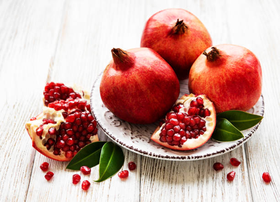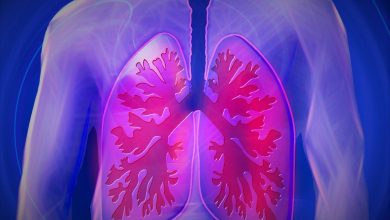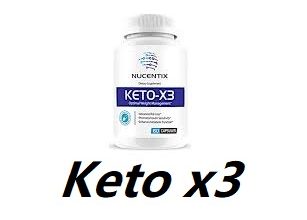Is Erectile Dysfunction Treatable With Pomegranates?

Besides the well-known dietary supplements for erectile dysfunction, pomegranates may also be a viable option for treatment. These fruits have been found to contain phytochemicals that can improve blood flow to the penis and reduce oxidative damage to cells.
Increased blood flow to the penis
Several studies have shown that pomegranates can boost erectile function. They are full of antioxidants that can help improve blood circulation and alleviate erectile problems. The antioxidants in the pomegranate can limit inflammation and stop free radicals from restricting blood flow.
Another study found that pomegranates reduce the growth of arterial plaque. The antioxidants in the pomegranate may also promote blood vessel dilation. The dilation of blood vessels helps to increase blood flow to the penis, resulting in stronger erections and for that you can also take Fildena 100.
Studies also show that pomegranates may be useful in fighting prostate cancer. Studies showed that men who drank pomegranate juice experienced a reduction in their PSA. The researchers also found that nitrates in the pomegranate helped increase sexual performance. The nitrates in pomegranate help improve blood flow to the genitals.
In another study, the researchers found that men who drank pomegranate improved their erections. The study also found that pomegranate juice helped reduce the growth of arterial plaque.
Pomegranates have several other health benefits. They are high in antioxidants and nitrates. These antioxidants can help to reduce cholesterol and improve heart health. They also contain magnesium, which is important in managing erectile problems.
Pomegranates can be eaten whole or they can be mixed into your favorite recipes. You can also take pomegranate juice as a daily supplement. These seeds have been found to improve memory and T. They are also rich in omega 3 fatty acids, which can help to protect the heart.
Pomegranates contain a wide range of vitamins and minerals. The seeds help to boost libido, and may also be helpful in preventing a midnight sweet tooth. The juice contains three times more antioxidants than red wine.
Prevention of smooth muscle dysfunction and fibrosis
Besides its anti-inflammatory properties, pomegranate also has a beneficial effect on erectile dysfunction (ED). In the past, the pomegranate was used for diarrhea, parasitic infection, and inflammatory disorders, and it has also been shown to be an antioxidant. In addition, it has been studied for a variety of urological disorders.
Pomegranate extracts are known to inhibit tumor cell proliferation and invasion. It has also been found to protect the mitochondrial integrity. In addition, the pomegranate has been shown to be an antioxidant, which can inhibit oxidative stress. Several oxidative stress risk factors are associated with ED. These include hypertension, diabetes mellitus, smoking, and hypercholesterolemia.
Pomegranate juice was also found to inhibit tumor development in a mouse model of spontaneous prostate tumor development. In addition, pomegranate fruit extract was found to reduce prostate-specific antigen (PSA) in serum. In addition, pomegranate elagic acid was also found to reduce lipid per oxidation and stabilize mast cells. It also inhibited COX-2 expression in a colon cell line.
The pomegranate peel aqueous extract inhibited lip polysaccharide-induced lung inflammation in mice. It also had a bactericidal effect against E. coli O157:H7. Moreover, pomegranate peel ethanol extract exhibited anti-adenovirus activity.
Several studies have shown that pomegranate has a bactericidal effect against Helicobacter pylori. This bacterium is a major etiological agent in peptic ulcer. In addition, pomegranate seed oil has been found to suppress tumor growth. The peel extract was also found to increase the flora in the cecal area of mice on a high-fat diet. It also had an anti-HSV-1 and HSV-2 effect.
Several studies have shown that oxidative stress plays a role in prostate cancer. In addition, the pomegranate was found to inhibit the proliferation of PC-3 prostate cancer cells.
The ant oxidative therapy
Currently, there is emerging evidence that oxidative stress is a risk factor for erectile dysfunction. The oxidative damage involves lipid per oxidation, protein oxidation, and decreased nitric oxide bioavailability. In erectile tissues from atherosclerotic animals, the structural damage is accompanied by an increase in oxidative products.
In erectile tissues, the oxidative burden exceeds the antioxidant capacity. This results in oxidative tissue injury. The injury affects several organs, including the vascular smooth muscle. The injury is thought to involve DNA oxidation, protein oxidation, and the up regulation of cytokines.
Pomegranates contain antioxidants that fight free radicals. Antioxidants also decrease inflammation. These antioxidants can also inhibit the actions of metalloproteinase’s, which degrade cellular matrix.
Pomegranates can be consumed in many forms. Pomegranate juice is known for its blood-flow-enhancing effect. Pomegranate extracts have also been found to increase the number of healthy sperm.
In addition to improving blood flow, pomegranate juice has also been found to reduce arterial plaque growth. In addition, pomegranate seeds may help decrease prostate cancer risk and solve erectile dysfunction and it can also be solved by taking Fildena 200. The seeds can be blended into pulp or added to meals. In addition to promoting cardiovascular health, pomegranate seeds can increase testosterone levels and improve memory.
Studies show that pomegranate extracts can prevent the up regulation of oxidative stress-responsive genes. These genes encode SOD, a protein that is thought to reduce damage caused by O2-. Interestingly, pomegranate extracts may also protect mitochondrial integrity.
Pomegranate juice and extracts can be used as a prophylactic treatment for erectile dysfunction. The antioxidants in pomegranates may help to prevent cavernous fibrosis, a common complication of erectile dysfunction.
Pomegranate juice and extracts may also be useful for the treatment of arteriogenic erectile dysfunction. The antioxidants may protect the erectile tissues from oxidative damage and may even help to promote blood vessel dilation.
Phytochemicals in pomegranate extract
Phytochemicals in pomegranate extract are thought to be beneficial for men’s urologic health. Although some studies show positive results, these benefits have not been well studied in clinical trials.
The benefits of pomegranate include antioxidants, vitamin C, and alkaloids. These compounds are believed to help lower cholesterol, reduce inflammation, and open blood vessels. The phytochemicals in pomegranate also reduce oxidative stress.
Several studies have shown that pomegranate can improve men’s erectile dysfunction. In one study, 60 sexually active, healthy males with mild to moderate erectile dysfunction were administered pomegranate juice. After a period of eight weeks, the men showed improved erectile function. The researchers also observed an improvement in libido.
A 2005 Italian study found that pomegranate juice reduced oxidant damage to blood vessels. It also increased nitric oxide levels. Nitric oxide helps relax blood vessels and prepare the penis for erection.
Researchers have also studied pomegranate extract for its effectiveness in treating prostate cancer. The extract showed a selective estrogen receptor modulator profile in human tumor cell lines and in vivo estrogen deprivation models. Several studies have shown that estrogen blocks testosterone production. The hormone imbalance that occurs from estrogen damages bone strength, interferes with libido, and harms erectile health.
Pomegranate juice has also been used to treat peripheral artery disease, hypertension, and coronary artery disease. Pomegranate juice is also believed to have an anti-inflammatory effect on the body. It has also been shown to be effective in the treatment of dental infections and nonalcoholic fatty liver disease.
Pomegranate extract is also used in cancer immunotherapy. Researchers have found that it inhibits the SARS-COV-2 spike protein. It also inhibits the invasion of cancer cells. Another study found that it inhibits the ACE2 receptor contact.
Mechanisms of oxidative injury in ED
Several mechanisms are involved in the path physiology of spinal cord injury (SCI). Oxidative stress plays a role in both primary and secondary injury.
The first mechanism is the increase in the production of reactive oxygen species (ROS). These are oxygen-based chemical intermediates with a high reactivity. These are produced by the respiratory chain of the mitochondria. These ROS are converted into less toxic molecules by antioxidant enzymes. These enzymes include superoxide dismutase and glutathione peroxidase.
Another mechanism involves the generation of free radicals by the release of xenobiotics into the blood stream. These free radicals can then travel to the tissue and cause damage. A major antioxidant defense is lipid per oxidation, which protects against oxidative stress.
A third mechanism is the generation of ROS within cells. This is frequently hypothesized to be a key mechanism linking particle exposure to physiological responses. The formation of ROS within cells is a consequence of catalytic reactions occurring on the surface of the particle and red ox cycling of metal ions dissolved from the particles.
Indirect measures of oxidative stress include measuring the GSSG to GSH ratio, which is a measurement that is useful in assessing oxidative stress in cells. However, measuring ROS is difficult because highly reactive ROS are difficult to measure directly.
The aforementioned is a very complex biochemical mechanism. Oxidative stress may be reduced by the addition of polyethylene glycol to the spinal cord after injury. Similarly, edaravon, a drug that is believed to be a bioactive compound, is thought to reduce oxidative stress by improving mitochondrial function. This may be the molecular mechanism for erectile dysfunction.
Oxidative stress in SCI is a complex issue, but alleviating it may be an effective therapeutic approach. Several bioactive compounds with a ROS-scavenging capacity have been studied in animal models of SCI. Studies of these compounds in human subjects may lead to the development of effective antioxidant-based modalities for treating SCI.



